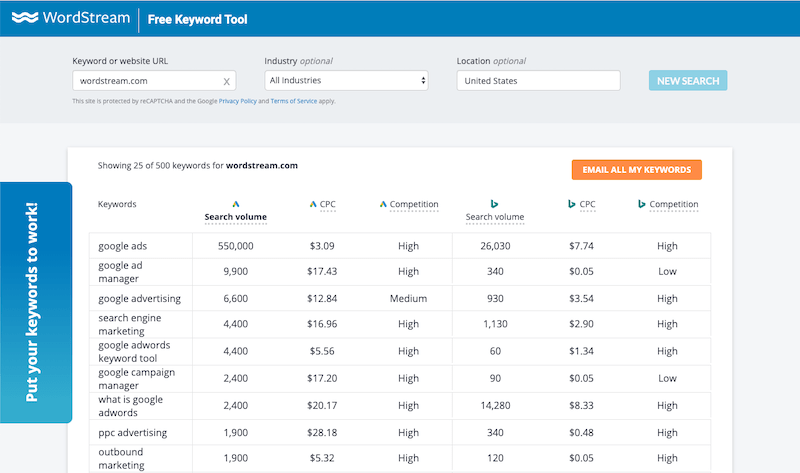CGKY News Hub
Your go-to source for the latest insights and trends.
Keyword Tools That Speak Your Language
Unlock the power of keyword tools that truly understand you! Discover tools that convert your ideas into clicks effortlessly.
Unlocking Multilingual SEO: Top Keyword Tools for Every Language
In today's global marketplace, optimizing your website for multiple languages is essential for reaching a wider audience. Multilingual SEO requires a strategic approach to keyword research, and utilizing the right tools is key to success. Here are some of the top keyword tools that can help you identify relevant search terms in various languages:
- Google Keyword Planner: This free tool offers insights into keyword search volumes and trends across different regions and languages.
- SEMrush: A comprehensive SEO suite that provides keyword research features for numerous languages, allowing you to analyze competitors and find opportunities in multilingual markets.
Once you've gathered a list of potential keywords, it’s crucial to understand how cultural nuances can affect search behavior. Tools like Ahrefs and Ubersuggest can aid in refining your keyword strategy by providing metrics such as search difficulty and related keyword suggestions. Remember, successful multilingual SEO is not just about translation; it’s about localization. Take the time to tailor your content for each specific audience to ensure maximum engagement and visibility.

How to Choose the Right Keyword Tool for Your Language Needs
Choosing the right keyword tool for your language needs is essential for effective SEO strategy development. Start by considering your target audience and the languages they speak. Tools like Google Keyword Planner can help you identify keywords in various languages, but be sure to evaluate their accuracy and breadth in regional language variations. Create a checklist of the features you prioritize, such as multilingual support, user interface, and pricing. Popular options include free tools like Ubersuggest and paid tools like SEMrush, each offering unique advantages tailored to different linguistic nuances.
Once you have a shortlist of potential tools, take the time to test their functionalities. Most reputable keyword tools provide free trials or limited versions that allow you to analyze keyword data in your preferred languages. Additionally, consider the integration possibilities with other SEO tools you may already be using. Gathering feedback from other SEO professionals or online communities can also provide valuable insights into the user experience and effectiveness of the tools. Ultimately, the goal is to find a keyword tool that not only meets your language requirements but also enhances your overall SEO performance.
Are You Missing Out? The Importance of Language-Specific Keyword Research
In the ever-evolving landscape of digital marketing, language-specific keyword research has emerged as a critical component for reaching diverse audiences. Many marketers mistakenly adopt a one-size-fits-all approach, failing to consider the unique linguistic nuances of different regions. This oversight can lead to missed opportunities and ineffective campaigns. By conducting thorough research on language-specific keywords, companies can optimize their content to resonate better with local audiences, improving engagement and conversion rates.
Moreover, implementing language-specific keyword research not only boosts organic traffic but also enhances overall user experience. When users find content that speaks to them in their preferred language, they are more likely to trust the brand and make a purchase. To effectively conduct language-specific keyword research, consider using tools that cater to various languages and dialects, ensuring that your content is not only discoverable but also relatable. Remember, in today’s global market, tailoring your SEO strategy to include language-specific keywords is not just beneficial—it's essential.